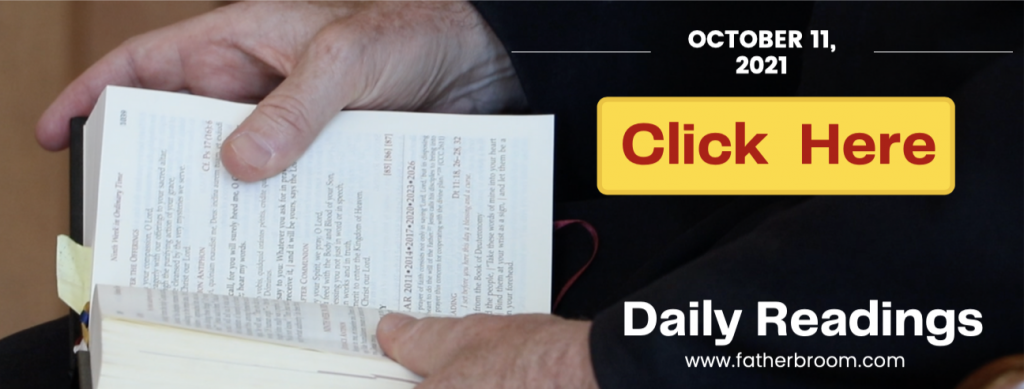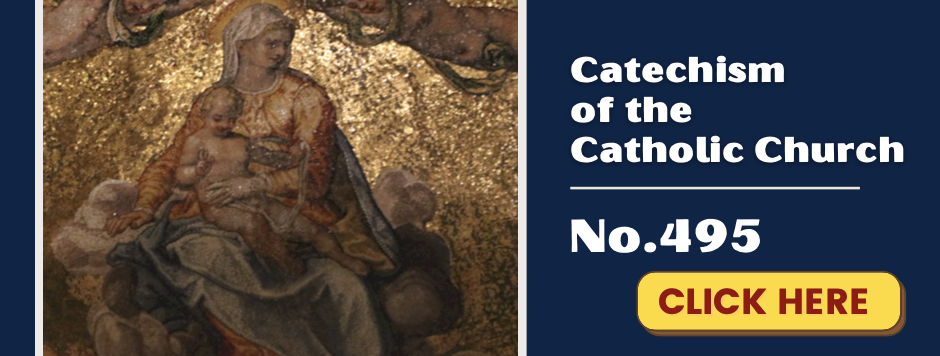Monday of the Twenty-eighth Week in Ordinary Time



“For greater things you were born.” (Ven. Mother Luisita)
Monday, October 11th Lk. 11: 29-32 “As the crowds increased, Jesus said, ‘This is a wicked generation. It asks for a sign, but none will be given it except the sign of Jonah. For as Jonah was a sign to the Ninevites, so also will the Son of Man be to this generation.’”
Today’s Gospel is on the Virtue of Faith. Our meditation has two parts.
PART ONE: A review of our knowledge and understanding of the Three Theological Virtues – Faith, Hope and Charity from the Catechism of the Catholic Church.
PART TWO: Practicing the Virtue of Faith according to the Faith of Old Testament Figures that St. Paul refers to as the “ancients”.
PART ONE: The Three Theological Virtues – Faith, Hope and Charity.
FAITH:
CCC 1813: The theological virtues are the foundation of Christian moral activity; they animate it and give it its special character. They inform and give life to all the moral virtues. They are infused by God into the souls of the faithful to make them capable of acting as his children and of meriting eternal life. They are the pledge of the presence and action of the Holy Spirit in the faculties of the human being. There are three theological virtues: faith, hope, and charity.77
CCC 1814: Faith is the theological virtue by which we believe in God and believe all that he has said and revealed to us, and that Holy Church proposes for our belief, because he is truth itself. By faith “man freely commits his entire self to God.”78 For this reason the believer seeks to know and do God’s will. “The righteous shall live by faith.” Living faith “work[s] through charity.”79
CCC 1815: But “faith apart from works is dead”.
HOPE:
CCC 1817: Hope is the theological virtue by which we desire the kingdom of heaven and eternal life as our happiness, placing our trust in Christ’s promises and relying not on our own strength, but on the help of the grace of the Holy Spirit.
CCC 1818: The virtue of hope responds to the aspiration to happiness which God has placed in the heart of every man; it takes up the hopes that inspire men’s activities and purifies them so as to order them to the Kingdom of heaven; it keeps man from discouragement; it sustains him during times of abandonment; it opens up his heart in expectation of eternal beatitude. Buoyed up by hope, he is preserved from selfishness and led to the happiness that flows from charity.
CHARITY:
CCC 1822: Charity is the theological virtue by which we love God above all things for his own sake, and our neighbor as ourselves for the love of God.
CCC 1823: Jesus makes charity the new commandment.96 By loving his own “to the end,”97 he makes manifest the Father’s love which he receives. By loving one another, the disciples imitate the love of Jesus which they themselves receive. Whence Jesus says: “As the Father has loved me, so have I loved you; abide in my love.” And again: “This is my commandment, that you love one another as I have loved you.”98
PART TWO: Practicing the Virtue of Faith according to the witness and faith of Old Testament figures.
We have the fullness of the Faith in the One, Holy, Catholic (meaning universal), and Apostolic Church and the Sacraments established by Jesus Christ through His Passion, Death and Resurrection and the institution of the Priesthood.
Should not our Faith be all the stronger for 2000+ years of the practice of the Faith, in particular the witness of the Saints and Martyrs – shining like stars in the firmament of Heaven?
Following is a beautiful Litany of Praise by St. Paul honoring the Faith of the ancients! Remember, they had faith based on a Promise, whereas we have faith based on the fulfillment of that Promise! We believe because we have eyewitness accounts of the Person of Jesus Christ, born of the Virgin Mary, who came to teach us all truth, then suffer, die and rise from the dead, with this promise: “Do not let your hearts be troubled. You believe in God; believe also in me. My Father’s house has many rooms; if that were not so, would I have told you that I am going there to prepare a place for you? And if I go and prepare a place for you, I will come back and take you to be with me that you also may be where I am.” (Jn 14:1-3)
From the Epistle of Paul to the Hebrews, Chapter 11 – Faith in Action
Now faith is confidence in what we hope for and assurance about what we do not see. This is what the ancients were commended for.
By faith we understand that the universe was formed at God’s command, so that what is seen was not made out of what was visible.
By faith Abel brought God a better offering than Cain did. By faith he was commended as righteous, when God spoke well of his offerings. And by faith Abel still speaks, even though he is dead.
By faith Enoch was taken from this life, so that he did not experience death: “He could not be found, because God had taken him away.” For before he was taken, he was commended as one who pleased God. And without faith it is impossible to please God, because anyone who comes to him must believe that he exists and that he rewards those who earnestly seek him.
By faith Noah, when warned about things not yet seen, in holy fear built an ark to save his family. By his faith he condemned the world and became heir of the righteousness that is in keeping with faith.
By faith Abraham, when called to go to a place he would later receive as his inheritance, obeyed and went, even though he did not know where he was going. By faith he made his home in the promised land like a stranger in a foreign country; he lived in tents, as did Isaac and Jacob, who were heirs with him of the same promise. For he was looking forward to the city with foundations, whose architect and builder is God. And by faith even Sarah, who was past childbearing age, was enabled to bear children because she considered him faithful who had made the promise. And so from this one man, and he as good as dead, came descendants as numerous as the stars in the sky and as countless as the sand on the seashore.
By faith Abraham, when God tested him, offered Isaac as a sacrifice. He who had embraced the promises was about to sacrifice his one and only son, even though God had said to him, “It is through Isaac that your offspring will be reckoned.” Abraham reasoned that God could even raise the dead, and so in a manner of speaking he did receive Isaac back from death.
By faith Isaac blessed Jacob and Esau in regard to their future.
By faith Jacob, when he was dying, blessed each of Joseph’s sons, and worshiped as he leaned on the top of his staff.
By faith Joseph, when his end was near, spoke about the exodus of the Israelites from Egypt and gave instructions concerning the burial of his bones.
By faith Moses’ parents hid him for three months after he was born, because they saw he was no ordinary child, and they were not afraid of the king’s edict.
By faith Moses, when he had grown up, refused to be known as the son of Pharaoh’s daughter. He chose to be mistreated along with the people of God rather than to enjoy the fleeting pleasures of sin. He regarded disgrace for the sake of Christ as of greater value than the treasures of Egypt, because he was looking ahead to his reward. By faith he left Egypt, not fearing the king’s anger; he persevered because he saw him who is invisible. By faith he kept the Passover and the application of blood, so that the destroyer of the firstborn would not touch the firstborn of Israel.
By faith the people passed through the Red Sea as on dry land; but when the Egyptians tried to do so, they were drowned.
By faith the walls of Jericho fell, after the army had marched around them for seven days.
By faith the prostitute Rahab, because she welcomed the spies, was not killed with those who were disobedient.
And what more shall I say? I do not have time to tell about Gideon, Barak, Samson and Jephthah, about David and Samuel and the prophets, who through faith conquered kingdoms, administered justice, and gained what was promised; who shut the mouths of lions, quenched the fury of the flames, and escaped the edge of the sword; whose weakness was turned to strength; and who became powerful in battle and routed foreign armies.
Women received back their dead, raised to life again. There were others who were tortured, refusing to be released so that they might gain an even better resurrection. Some faced jeers and flogging, and even chains and imprisonment. They were put to death by stoning; they were sawed in two; they were killed by the sword.
They went about in sheepskins and goatskins, destitute, persecuted and mistreated—the world was not worthy of them. They wandered in deserts and mountains, living in caves and in holes in the ground.
These were all commended for their faith, yet none of them received what had been promised, since God had planned something better for us so that only together with us would they be made perfect.
End of the Epistle of Paul to the Hebrews, Chapter 11.
Truly, we are God’s spoiled children!!!
Copyright 2021 Oblates of the Virgin Mary / St. Peter Chanel Church, Hawaiian Gardens, CA